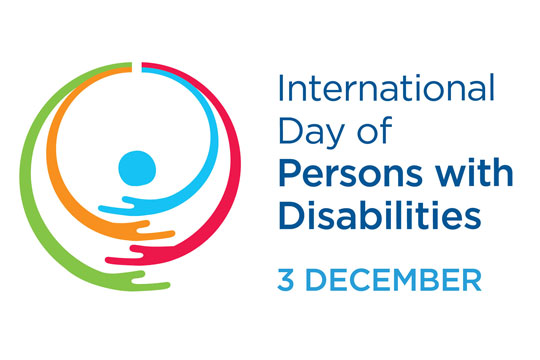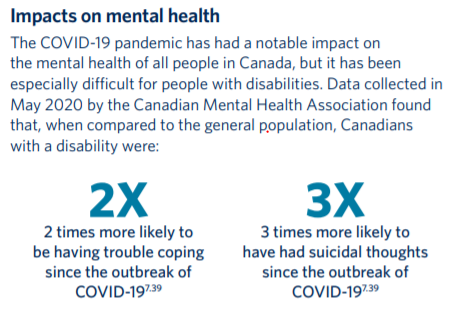Here at the Guelph Enabling Garden, accessibility and inclusion is a priority. We strive to offer garden experiences and programming that can be enjoyed by all members of our Guelph community and beyond. During the ongoing pandemic, we’ve been challenged to bring these experiences to our clients through technology.
This Friday, December 3, is the International Day of Persons with Disabilities. This week we are shining a light on this day and why it is so important, especially this year.
What is the International Day of Persons with Disabilities?

The International Day of Persons with Disabilities (IDPD) was established in 1992 by the United Nations General Assembly. Celebrated on December 3 around the world, IDPD mobilizes support for critical issues relating to the inclusion of persons with disabilities, raises awareness about disability issues and draws attention to the benefits of an inclusive and accessible society for all.
This year, the theme of IDPD is “Building back better”: towards an inclusive, accessible and sustainable post COVID-19 world by, for and with persons with disabilities.
How has COVID-19 affected persons with disabilities?
Previous to the COVID-19 pandemic, data shows that people with disabilities already faced barriers in access to education, employment, and essential services. Now, they are disproportionately affected by the health, social and economic consequences of the global COVID-19 pandemic. Many adaptations made to handle the pandemic were not made with accessibility in mind and were difficult to navigate, such as mask requirements, virtual classrooms or workplaces, telehealth, housing or mental health support, and more.
This year’s theme of building back better emphasizes the importance of strengthening our collective efforts to ensure persons with disabilities are not left behind during a crisis and beyond.

The Guelph Enabling Garden and Guelph Barrier Free Committee are using the Vital Focus report to help understand the impacts of COVID-19 on people with disabilities in our community. The report was created collaboratively with Toward Common Ground, City of Guelph, United Way Guelph-Wellington-Dufferin, County of Wellington and Wellington-Dufferin-Guelph Public Health, and provides critical information, resources, and recommendations to address these issues.
How is the GEG taking action?
Like so many non-profit organizations, the Garden has had to adapt to safety regulations. We are proud to have been able to offer two virtual versions of our normal programming in the last year:
- Virtual Winter 2020/2021 Horticultural Therapy Programming
Thanks to funding through the federal New Horizons for Seniors Program, we were able to develop & launch a new, virtual version of our HT programming. This pilot project went so well that we plan to offer it again in the Winter 2021/2022 year. Stay tuned! - VirtualiTea ‘n’ Tales
In partnership with the Storytelling Guild of Guelph, we brought back the sorely missed Tea ‘n’ Tales in a new virtual format. We welcomed 22 storytellers and dozens of viewers.
While we hope the pandemic will be over soon and that we’ll be able to gather in the Garden once more, we are committed to delivering positive garden experiences to our community however we can.
Have a comment or idea? Email us at info@enablinggarden.org.
If you or someone you know is struggling, please visit Toward Common Ground for a list of local supports and services. If you are in crisis, call Here 24/7 at 1-844-437-3247.
Call Family Counselling and Support Services for Guelph-Wellington:
• Distress line at 1-888-821-3760 or 519-821-3760
• Walk-In/Virtual Mental Health clinics at 519-824-2431 or 1-800-307-7078 to make an appointment. No referral required.
Visit Wellington-Dufferin-Guelph Public Health for additional mental health resources.
